AI created his first movie and this is a horror movie.
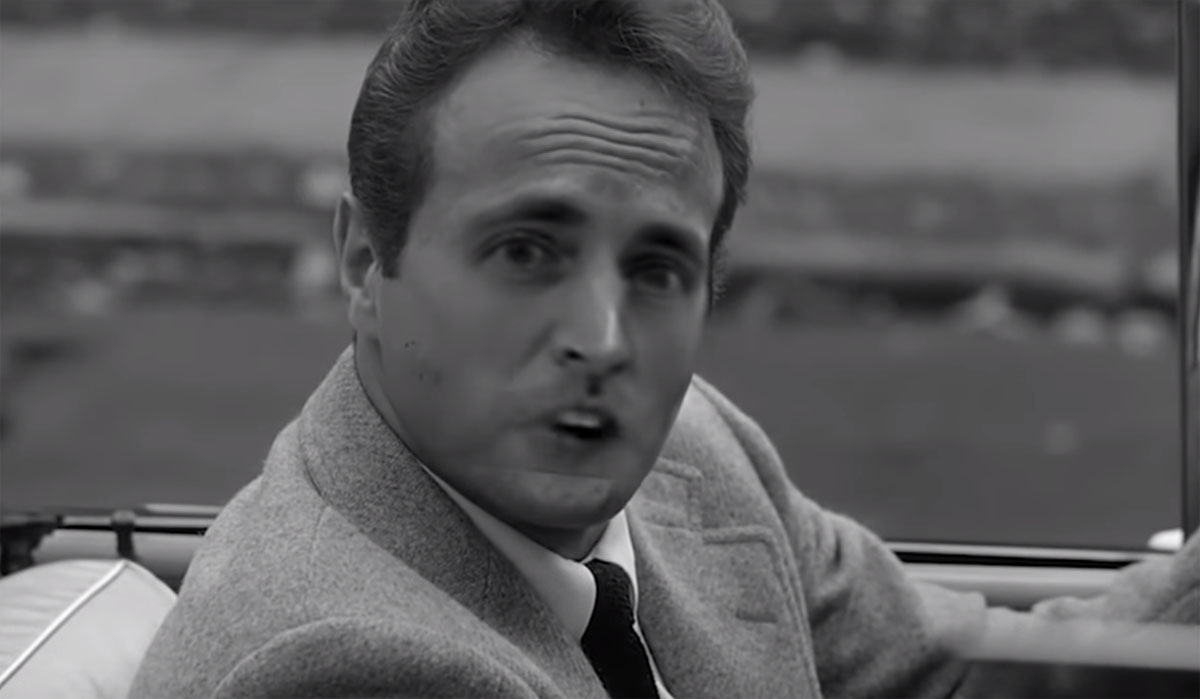
Artificial intelligence under the guidance of an engineer from Google independently made the first motion picture. He didn’t just put parts of other people's films with each other, or gave out letters of the script, but created a full-fledged short film. He wrote the plot himself, wrote all the dialogues himself, chose scenes himself and defined the facial expressions of the actors (and even, apparently, he wrote the title for the newspaper shown in the film - although it turned out so ironic that it is difficult to believe). The voice of the characters, music and installation - of course, also for the AI. But the resulting black and white science fiction does not seem cute.
In the new short film Zone Out, the star of the series “Silicon Valley”, Thomas Middleditch, plays a scientist who is trying to stop the spread of a virus that changes people's faces. His own face cannot keep himself in a normal position, shivering back and forth on his head. The mouth sometimes disappears completely. His film colleague, actress Elizabeth Gray, is no better. For example, someone else's mustache sometimes appears above her lips. Looks pretty creepy. It seems that they can not be saved.
The director of the film, "Benjamin", is unlikely to explain to you what's what, and what sense he laid into his creation. The fact is that this is AI, artificial intelligence, which made a short film in 48 hours, using thousands of hours of old films, hundreds of thousands of novels and the faces of real actors (with their permission). If it were not for the newspaper headline at the beginning of the second minute, Einstein probably could not have deciphered the plot of the film.
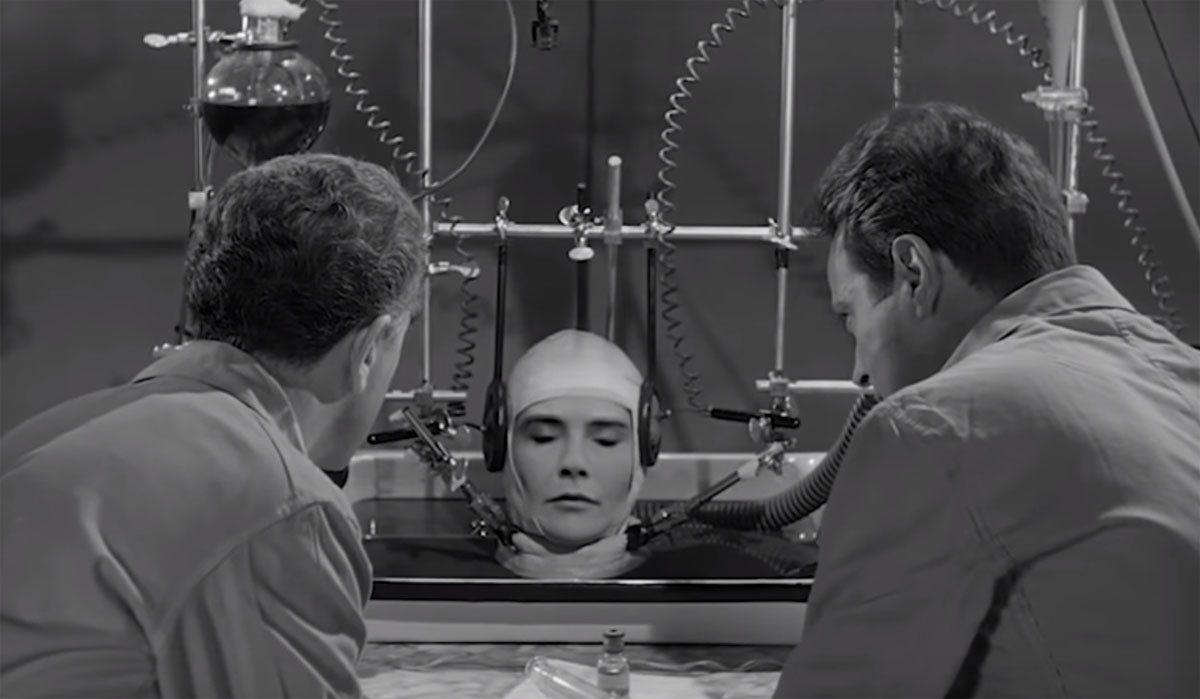
Frame from the film
The faces of the actors were superimposed on the necessary scenes, and showed exactly the emotions that AI wanted, thanks to the same technology used to make Deepfakes. We already told about this system, about its really serious danger and about funny (so far) memes in the article " How AI inserts Nicolas Cage into films and making porn with celebrities ." Then andersong prophetically wrote:
It will be possible before you start watching the movie to put a tick, which actor you want to see as the main character, which one - antagonist. And the next day reconsider with other actors.
Benjamin can already do it - he does not care whose faces to use when creating his masterpieces. And the script of the film can also be changed "on the fly": it is enough to feed AI romantic comedies, not sci-fi and noir - and now you will have a completely different product for your target audience. 48 hours.
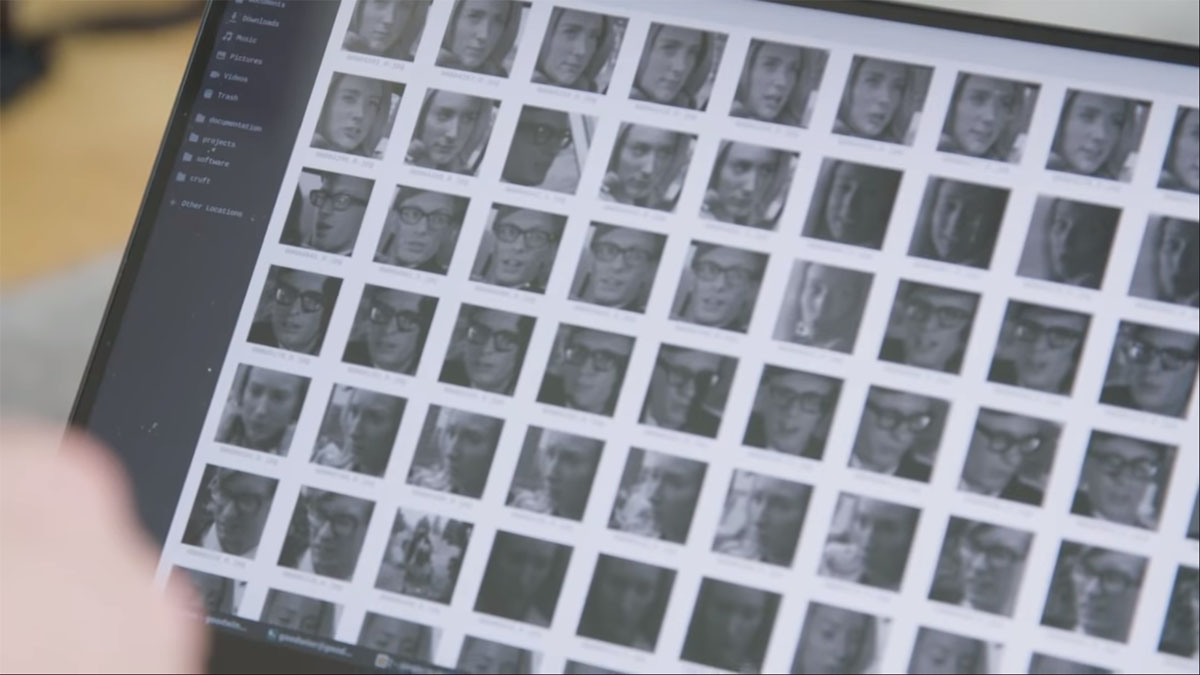
A set of persons for training Benjamin
Responsible for the project is Ross Goodwin , who develops “creative technologies” and works on machine intelligence at Google. But he is keen on his filming separately from working in an IT company, this is his “passion”. Goodwin helps director Oscar Sharp, a couple of familiar actors and a small team of researchers, collecting for the AI texts in the desired format.
Together, they notably troll "real" filmmakers - sending Benjamin films to traditional film festivals. Actually, therefore, the production of Zone Out and took 48 hours: this is the requirements of the Sci-Fi London Film Festivalwhere the jury determines the winners, and the first place gets a contract for a full-fledged film. One of the early works of Goodwin, Sharpe and AI, a short film called Sunspring, entered the top 10 (of hundreds of films and short stories) at this festival. And the film It's No Game, for which Benjamin compiled all the dialogues, based on the works of Shakespeare, in 2017 received a bronze medal. If the festival’s requirements were not so harsh, or if the car would have had more powerful iron, perhaps the faces of the heroes of the new film Zone Out would not be so distorted. The team did it on their own, without the help of Google, and Deepfakes technology takes time to create the perfect frame.
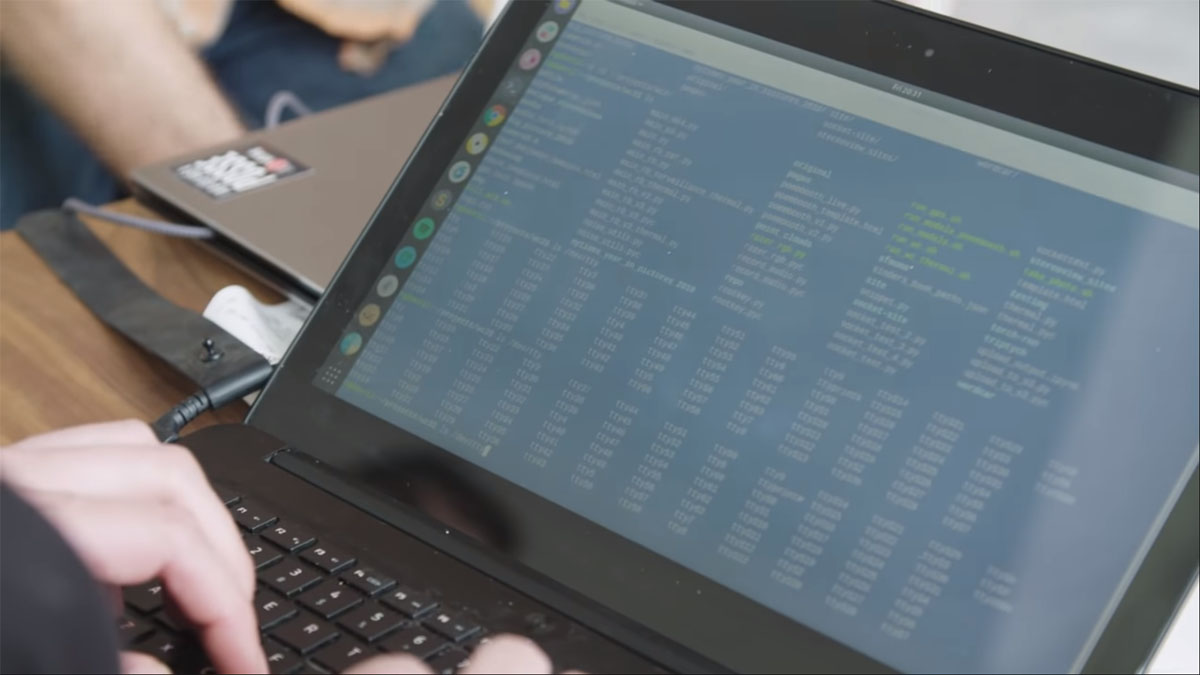
AI in Goodwin's laptop
During the production of their first film, Sharpe and Goodwin called their AI "Jetson." Then Jetson himself renamed "Benjamin" - in a rather creepy manner. During the presentation of the first Sunspring film at the London festival in 2016, someone asked AI what he would do after that. He answered:
Go. The staff is separated by train engine building in sweat. No one will see your face. Children enter the oven, but the light still slides along the floor. The world is in turmoil. The party goes with your co-workers.
My name is Benjamin.
After that, “Jetson” no one else called the car.
For Zone Out this year, Sharpe and Goodwin for the first time gave Benjamin full control. The script, the faces of the actors, the dialogues, the scenes - the AI was responsible for every aspect of the film. He even generated the music himself. Since Benjamin does not yet have cameras, he cannot run or shoot, he chose scenes from old films on his own - those that have become public property and can now be freely used by everyone. At first, the team recorded the voices of the actors reading the Benjamin script, but in the end they decided to try even to give this stage to the car. So all the dialogues in the film also reproduce robots. With intonation they are still very tight.
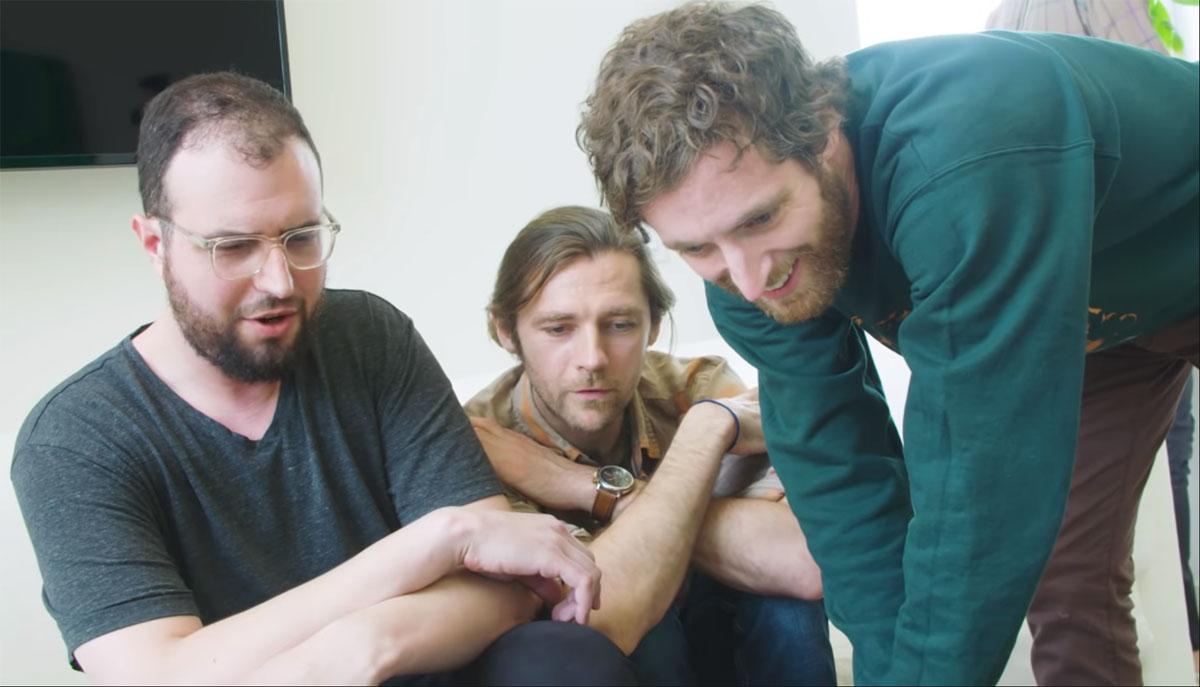
Goodwin, Sharp and Middleton are watching one of the first scenes of the new film.
The neural networks that make up Benjamin were trained through Amazon Web Services (“essentially, Nvidia’s AWS version of the DGX-1,” as Goodwin says), and 11 different GANs (generative-contention networks that try to control each other). When creating the AI, the TensorFlow machine learning library from Google was also used .
This year, the picture did not pass to the list for display at the London Film Festival. But the team is not worried - they are already happy that their AI managed to create something on its own, even remotely resembling a movie. Ross Goodwin says that he will definitely continue his work, and will try to understand whether it is possible to endow the car with creativity, or it will always be just a search of options (and whether people will be able to distinguish one from the other).
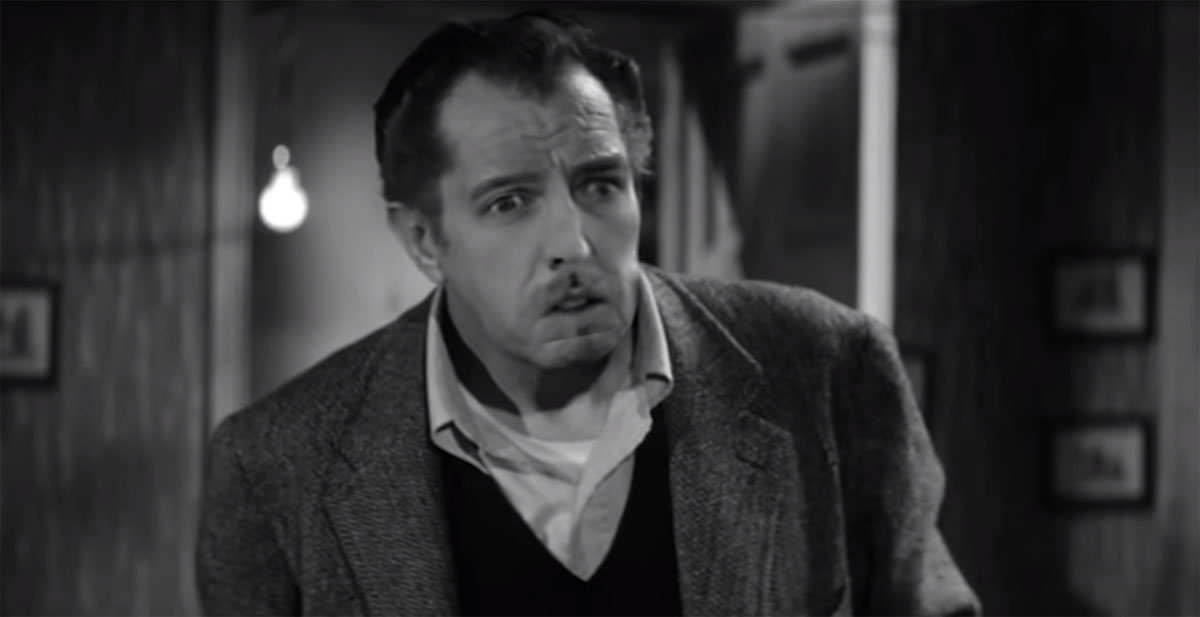
For now - they can definitely
To questions about the mass distribution of deepfakes, the main “actor” of the film, Thomas Middleditch, answers:
At this stage, people just want to create an AI. It will be difficult to predict how it will be used by others later, especially in the field of replacing individuals.
Elizabeth Gray, for whom the main (and only) female role is assigned, is optimistic:
If this technology does not take off, then I will have a job until the end of my life. And if this is the future, I probably won’t be able to work as an actress, but at least I was there at that moment when we realized that we would be replaced by computers.
And here, in fact, the film itself (Hitchcock is not far here, although the ending is really creepy):
As already mentioned, the same team in 2016, with the help of AI, made the film Sunspring - about the future, in which, due to a lack of jobs, young people are forced to sell their blood in order to make money somehow (well, or something it's hard to say). The script of the film was 100% written by artificial intelligence, but the actors themselves played their roles, and the professional director was responsible for the editing and the sound.
It turned out more watchable, and for a film made in 48 hours, even quite worthy. The plot is quite serious, but it all looks more like a comedy - with actors who are trying to talk nonsense with an important face. There is no such dark undertones and feelings of SkyNet intimacy that you feel when viewing Zone Out. Perhaps people just prevented the car from doing everything the way it wanted ...
PS Pochtoy.com delivers your goods from the USA. From $ 8.99 per pound. Readers, registered with the code Geektimes, get $ 7 to the account.
